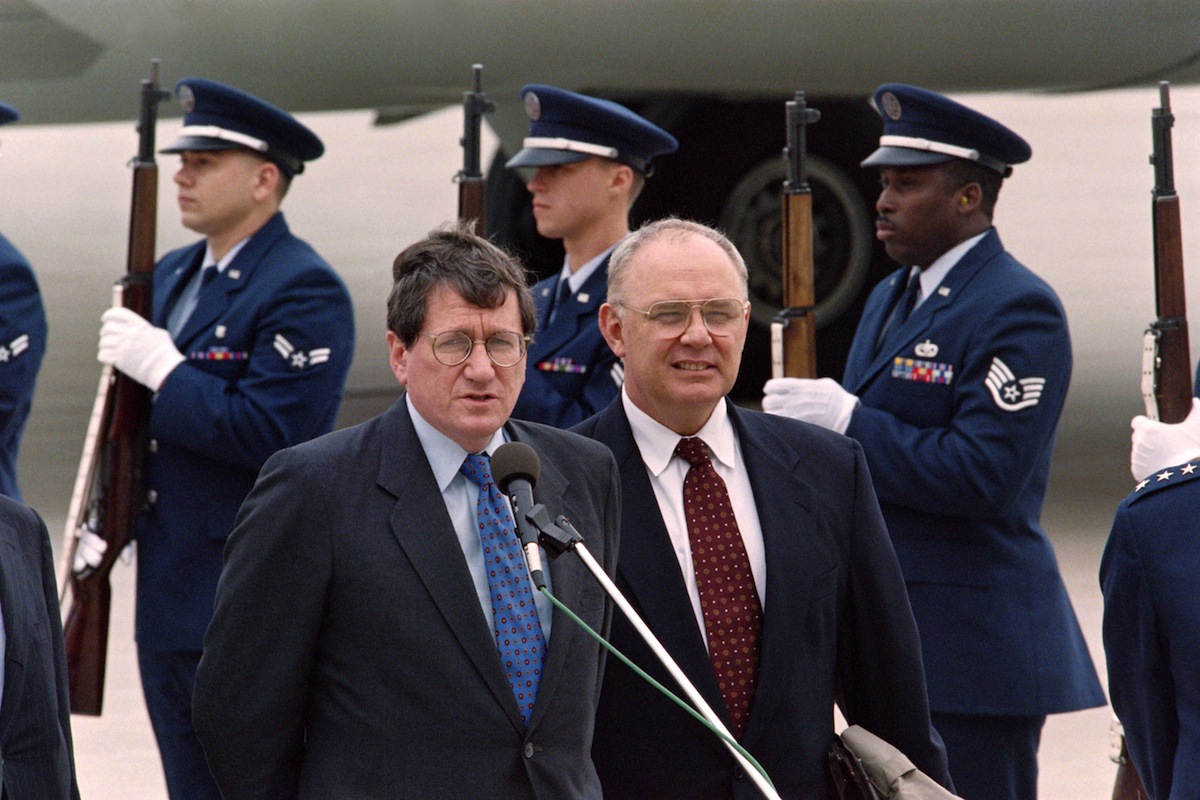
The documentary The Diplomat premieres on HBO on Monday, marking the signature achievement of the late diplomat Richard Holbrooke’s career: the signing of the Dayton Accords, which ended the war in Bosnia in 1995.
The Diplomat examines the legacy of its title subject, as viewed by his son, David, a filmmaker. Before the agreement, the ongoing war in Bosnia had been raging for years, despite cease-fires in Croatia and the first use of force by NATO to maintain a no-fly zone near Sarajevo. President Bill Clinton involved the U.S. military and, finally, in the middle of 1995, it seemed possible that peace might be negotiated. TIME noted that thanks to Holbrooke’s work as the U.S.’s chief negotiator on Bosnia, October 1995 brought the opening of “the most inviting window of opportunity for peace that Bosnia [had] seen in years.”
As the clock ticked on a limited-time cease-fire, Presidents Slobodan Milosevic of Serbia, Alija Izetbegovic of Bosnia and Herzegovina and Franjo Tudjman of Croatia came to a conference center at an Air Force base near Dayton, Ohio, chosen for its remoteness.
“Since August, the tightly wound Holbrooke has been at the center of the action,” TIME observed:
Reporters are likely to find him in the early hours of the morning roaming hotel corridors in his bare feet, looking for someone he can drag into his room to chat with while keeping one eye on CNN. He power-naps for 15 minutes or so, sometimes during meetings while supposedly listening to a translation. Aide Rosemarie Pauli-Gikas is assigned, among other tasks, to pinch him awake at the right moment…
Serbs use the term “to get Holbrooked” to mean being subjected to the diplomat’s badgering; Holbrooke’s staff jokes that the Serbs agreed to a cease-fire just to get him to shut up for a while. Nonetheless, the approach paid off in a lightning series of agreements: Aug. 30, Milosevic announced he had the Bosnian Serbs’ accord to negotiate for them; Sept. 8, broad settlement was reached on constitutional principles for a new Bosnia; Sept. 14, Bosnian Serbs agreed to withdraw heavy weapons from around Sarajevo and allow U.N. access; Oct. 5, a cease-fire agreement that seemed finally to have taken hold; and now the proximity talks.
By the end of the month, Holbrooke’s “brilliant head knocking” had succeeded. The peace agreement was a major milestone in Clinton’s presidency and in Holbrooke’s professional life. It was also, TIME noted, proof that there was a place for the world power to use its influence for good.
Holbrooke knew the moment’s significance, according to Joe Klein, TIME political columnist, who appears in the HBO film. When the diplomat died in 2010, Klein wrote, “He was a pushy romantic with a grand sense of his nation’s purpose and power, a driving desire to use that power — peacefully, through diplomacy, to make a better world.”
Read Joe Klein’s full remembrance of Richard Holbrooke: Fond Farewells
More Must-Reads from TIME
- Why Biden Dropped Out
- Ukraine’s Plan to Survive Trump
- The Rise of a New Kind of Parenting Guru
- The Chaos and Commotion of the RNC in Photos
- Why We All Have a Stake in Twisters’ Success
- 8 Eating Habits That Actually Improve Your Sleep
- Welcome to the Noah Lyles Olympics
- Get Our Paris Olympics Newsletter in Your Inbox
Write to Lily Rothman at lily.rothman@time.com